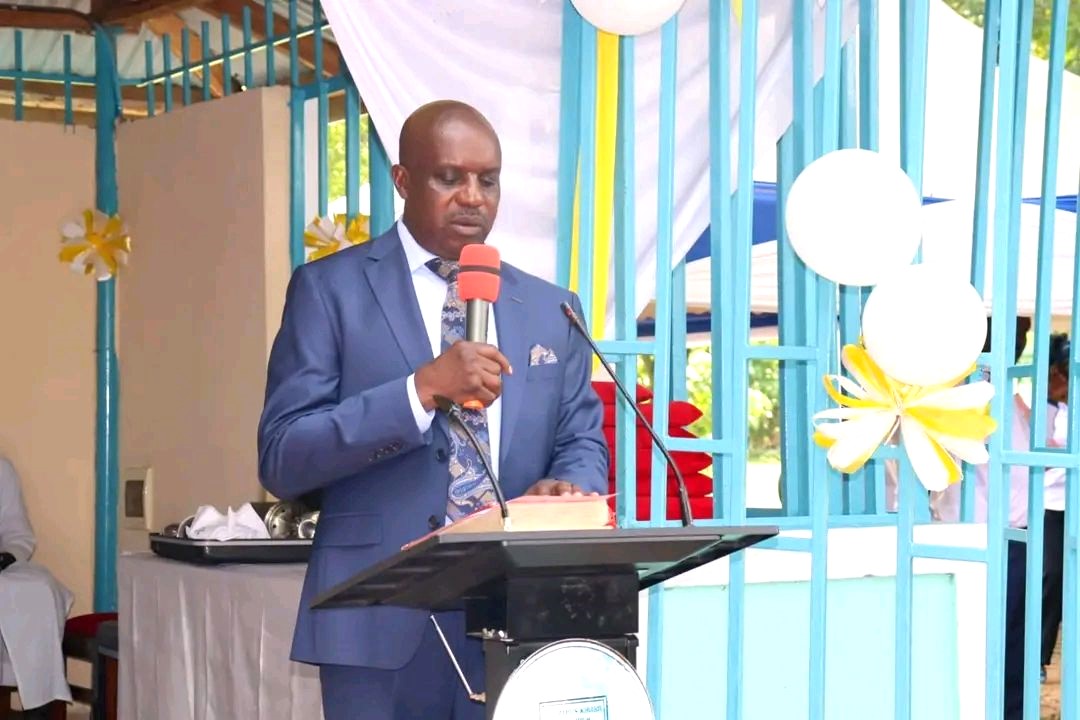Betrayal is one of the most dominant themes in Paul B. Vitta’s Fathers of Nations. It runs through the political, social, and personal lives of the characters, symbolising the moral decay and hypocrisy that plague post-independence Africa. The novel portrays betrayal not just as an act of deceit but as a pattern of failure – by individuals, leaders, and institutions – to live up to their promises, responsibilities, and values. The story’s political setting, coupled with personal intrigues, reveals how betrayal corrodes trust, destabilises relationships and perpetuates the suffering of ordinary citizens.
The novel’s title itself – Fathers of Nations – is ironic. The supposed “fathers” of Africa are expected to nurture and protect their people, yet they betray them for selfish gain. Their betrayal takes multiple forms: neglect, hypocrisy, corruption and manipulation.
To begin with, the African heads of state gathered in the capital city for the summit on the “Way Omega” strategy betray the very nations they lead. They are entrusted with the power to improve their citizens’ welfare, but they instead pursue policies that maintain their control and personal luxury. Instead of discussing genuine solutions for Africa’s socio-economic challenges, they waste time on empty rhetoric and political showmanship. Their lives of comfort in palaces and expensive hotels contrast sharply with the poverty and despair faced by their citizens. This betrayal reflects the author’s critique of post-independence African leadership, where the promises of liberation have been replaced by greed and authoritarianism.
Dr Afolabi’s role in the political intrigue further deepens the theme of betrayal. Officially, he serves as a consultant helping to refine the “Way Omega” document – a Western-backed development model meant to guide Africa’s progress. However, Afolabi secretly works with “Path Alpha,” a rival group that opposes Western interference and seeks African self-determination. In essence, he plays a double game. While his motives may appear noble – to help Africa regain autonomy – his deception amounts to a betrayal of the leaders who trust him. His intellectual dishonesty shows how even those who claim to champion reform can compromise moral integrity for ideology or revenge.
READ ALSO:
Keep them safe this December: Holiday safety tips for parents of young children
A similar form of betrayal is embodied in the President of Zimbabwe, who turns against Comrade Melusi, a freedom fighter who had risked his life during the liberation struggle. Melusi expects to be recognised and given a ministerial position after independence, but the new leader abandons him and instead rewards his tribal allies. Melusi’s betrayal symbolises the broader disillusionment of African revolutionaries who fought for independence only to be sidelined by corrupt elites once freedom was achieved. The betrayal here is both personal and ideological – a rejection of the very ideals that inspired the liberation struggle.
Engineer Tahir also experiences political betrayal when the President of Libya abandons the “Fist of Allah” initiative, a project Tahir passionately supports. His sense of loyalty and faith in the project is crushed by the leader’s abrupt withdrawal, showing how political expediency often trumps conviction. In these betrayals, the novel paints a grim picture of African politics: a realm of shifting loyalties, self-interest, and unfulfilled promises.
Beyond politics, Fathers of Nations exposes betrayal in private relationships, marriages, and friendships, demonstrating how moral decay in leadership mirrors the disintegration of personal values in society.
Newborn Walomu’s betrayal of Professor Kimani is among the most personal and painful examples. Kimani, once a respected academic, faces financial hardship and humiliation. Instead of offering support, his friend Walomu takes advantage of his vulnerability by marrying Kimani’s wife, Asiya. This act of betrayal reveals the selfishness and opportunism that pervade interpersonal relationships. Walomu’s betrayal is not only against Kimani but also against the ethics of friendship and professional respect.
Asiya’s betrayal of her husband further exposes the erosion of loyalty and moral strength. She leaves Kimani because of poverty and instability, choosing comfort over commitment. Her decision reflects a society where material wealth often outweighs emotional or ethical values. In this way, personal betrayal mirrors the political kind: both are driven by greed, impatience and the desire for self-preservation.
Dr Afolabi’s personal life also bears the scars of betrayal. His wife, Pamela, divorces him without discussion after he becomes entangled in a controversial marriage dispute influenced by his family’s interference. The pressure from Yoruba tradition, which pushes him toward taking a second wife, Nimbo, destroys his marriage. This cultural betrayal – where communal expectations override personal happiness – shows how traditions can sometimes act as forces of oppression rather than unity. Dr Afolabi is betrayed not only by his wife but by a culture that refuses to evolve.
Comrade Melusi’s tragedy extends beyond political betrayal into the personal sphere. The new ruler not only dismisses him from government but also orchestrates the killing of his wife, symbolising the destruction of his dreams and family life. Melusi’s story underscores the emotional toll of betrayal: it breaks the spirit and isolates the betrayed. His subsequent political struggles and loss of faith in comrades reflect the deep wounds left by broken promises and injustice.
The novel also explores betrayal on a cultural and ideological level. The imported Western models of governance and economic development, such as “Way Omega,” represent a betrayal of Africa’s autonomy. African leaders, instead of crafting homegrown solutions, surrender their independence to Western interests. This ideological betrayal reduces Africa to a puppet continent, dependent on foreign aid and policy direction.
Furthermore, the betrayal of culture is seen in the tension between tradition and modernity. Dr Afolabi’s marriage crisis exemplifies how rigid adherence to outdated customs can betray the spirit of love and mutual respect in families. Similarly, the younger generation’s frustration with political corruption and hypocrisy signals a cultural shift – a betrayal of the revolutionary ideals that once defined Africa’s identity.
Vitta demonstrates that betrayal, whether political or personal, carries devastating consequences. Politically, it leads to disillusionment, instability, and perpetual underdevelopment. Citizens lose faith in their governments, revolutions are betrayed, and progress is stifled. Personally, betrayal leads to broken families, loneliness and psychological torment. Dr Afolabi becomes a man haunted by regret, Kimani sinks into bitterness, and Melusi loses everything he fought for.
Ultimately, the novel suggests that betrayal is both a symptom and a cause of Africa’s stagnation. The “fathers of nations” fail not only because they are corrupt but because they betray the trust that gave them power. The same failure repeats in personal lives, where individuals betray those closest to them for fleeting comfort or advantage.
In Fathers of Nations, betrayal operates as the central thread weaving together the fates of individuals and nations. Political betrayal mirrors personal treachery; both stem from the same moral weakness – the inability to remain loyal to truth, duty and love. Through characters like Dr Afolabi, Comrade Melusi, Professor Kimani and Asiya, Vitta captures the anguish of a continent betrayed by its leaders and its own people. The novel warns that without integrity, trust and compassion, both personal and national destinies are doomed to collapse. In the end, Fathers of Nations stands as a powerful reflection of Africa’s struggle against the ghosts of betrayal – a call for renewal in leadership, relationships and the soul of the continent.
By Ashford Kimani
Ashford teaches English and Literature in Gatundu North Sub-county and serves as Dean of Studies.
>>> Click here to stay up-to-date with trending regional stories
>>> Click here to read more informed opinions on the country’s education landscape
>>> Click here to stay ahead with the latest national news.






